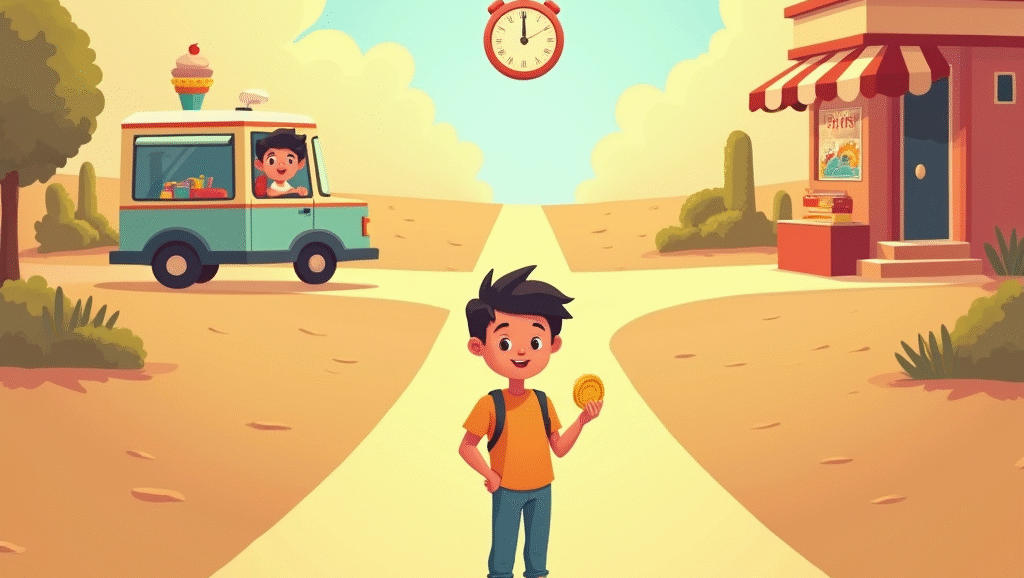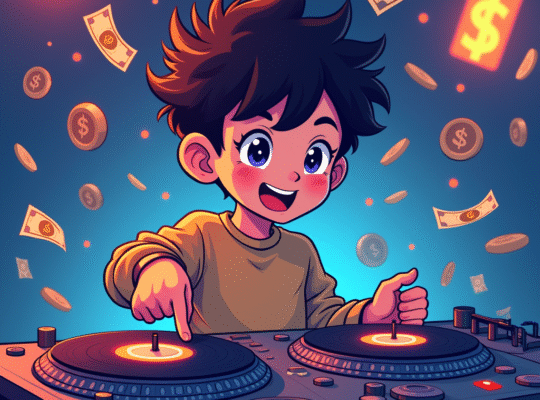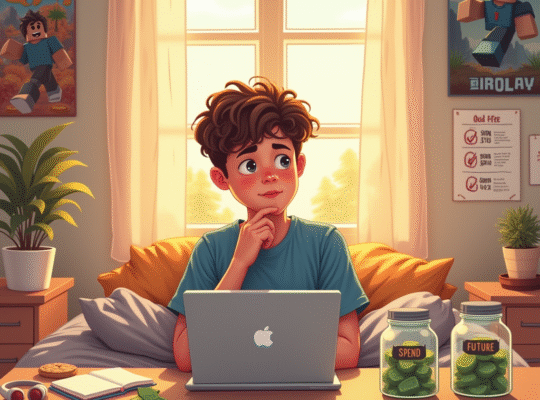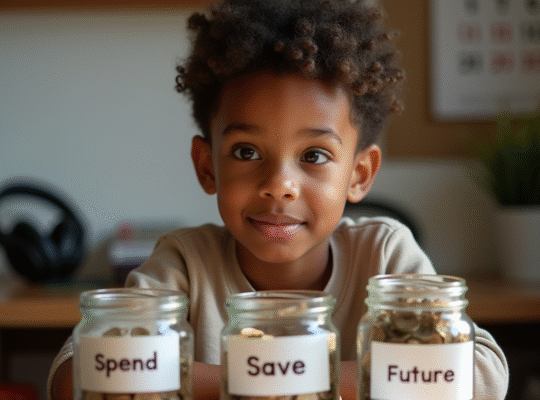Imagine you’re in your favorite game—maybe Roblox, Minecraft, or Animal Crossing. You’ve got coins or resources to spend… but only enough for one big thing. Do you upgrade your base? Buy a dragon pet? Or save it for a surprise item coming next week?That decision—that trade-off—is exactly what economics is about. Think of this as your starter level in the decision-making game—where every choice has real value.
Let’s start with the big idea: scarcity. It’s not just about not having enough Robux or dollars. It means that in life, there are never enough resources—time, money, energy, even snacks—to get everything we want. We have to choose. And every choice comes with something you don’t get. That’s where opportunity cost comes in. It’s the value of the next best thing you gave up.
Say you’ve got $10. You’re eyeing a comic book and a giant cookies-and-cream milkshake. You can’t get both. If you buy the milkshake, the comic is your opportunity cost. It’s not just about money—it’s about what you value more in that moment. And what you gave up to get it.
Now, economists say that every choice has costs and benefits. The benefit is what you gain—fun, food, maybe even learning. The cost is what you lose—money, time, or another cool option. Smart decision-making means comparing the two and asking: Is it worth it?
Here’s where it gets powerful. When you start thinking this way, you make better decisions. Not just with money, but with your energy, your time, your friendships—even your sleep schedule (yes, skipping sleep for one more level has an opportunity cost too!). So next time you’re choosing between two awesome things—whether it’s in a store or in a game—pause and think. What am I gaining? What am I giving up? And is this the best use of what I’ve got?Because you might not always have everything—but you do have the power to choose what matters most.



